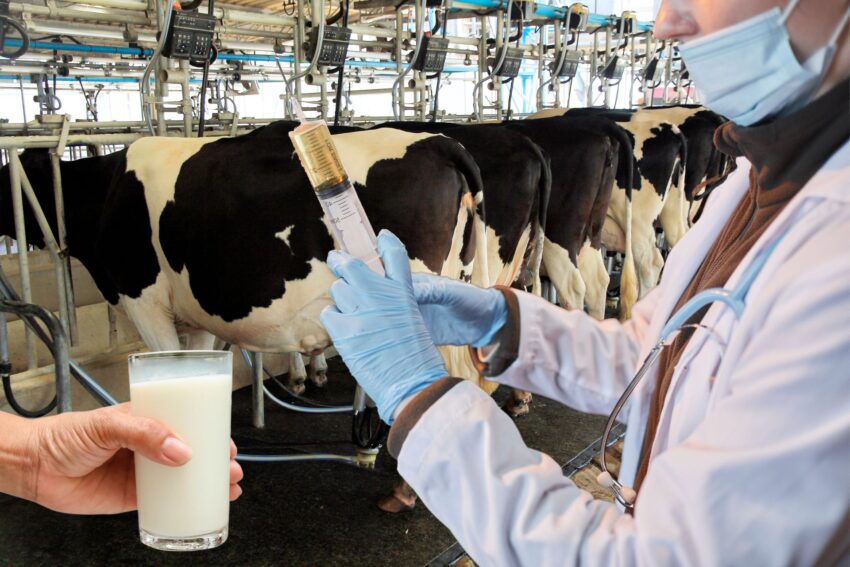The recent USDA approval for field trials of an H5N1 vaccine for dairy cows marks a significant step in combating avian influenza. However, this move towards vaccinating dairy cattle raises several alarming concerns regarding consumer safety, particularly the potential contamination of milk. Here’s a look into why this could be a public health crisis.
The Vaccine and Milk Contamination
The introduction of any vaccine into livestock, especially dairy cows, always carries the risk of unintended consequences. While vaccines are designed to protect against disease, the process of vaccination can lead to the presence of the virus or its components in the milk. Recent studies have reported the detection of H5N1 genetic material in milk, even if the virus itself might not be viable after pasteurization.
Right on schedule….
WHO Reports H5N1 Bird Flu Virus Detected in Milk.
And so it begins.https://t.co/kLRs14cyTP
— Raymond (@Raymond82310289) April 20, 2024
This raises a critical question: what happens if the vaccine, or parts of it, end up in our milk supply?
Consumer Safety Concerns
Vaccines often contain not just the virus or its parts but also adjuvants and other chemicals to enhance immune response. The potential for these substances to enter the milk supply is a significant concern. While pasteurization might kill live viruses, it’s unclear how effective it is against all vaccine components.
Vaccinated animals can sometimes shed the virus, even if in a non-infectious form. This shedding could contaminate milk with viral particles, which, although not infectious, might still provoke an immune response in humans or alter the milk’s composition.
The presence of any viral material in milk, even if not infectious, could lead to unforeseen health issues. For instance, could repeated exposure to these viral components lead to allergies or other immune system disorders? The long-term effects are largely unknown.
The Regulatory Response
The USDA and FDA’s current stance seems to be that pasteurization will mitigate risks, but this assumption might be overly optimistic. The lack of comprehensive studies on how vaccine components interact with milk during pasteurization leaves room for doubt. Moreover, the reliance on pasteurization overlooks the raw milk market, where consumers might be directly exposed to these risks.
Economic and Ethical Considerations
If milk contamination becomes a widespread issue, the economic repercussions for dairy farmers could be devastating. Not only would there be direct losses due to potentially unsellable milk, but also the loss of consumer trust could lead to long-term market shifts.
There’s an ethical question about whether it’s right to potentially expose consumers to these risks without their full knowledge or consent. Transparency in labeling or even in the decision-making process seems lacking.
Conclusion
The approval of H5N1 vaccine trials for dairy cows, while aimed at protecting livestock, opens a Pandora’s box of consumer safety issues. The potential for milk contamination with viral components or vaccine residues poses risks that current regulatory frameworks might not fully address. Consumers deserve transparency, rigorous testing, and perhaps most importantly, the choice to opt-out of consuming potentially contaminated products. As we move forward, the balance between agricultural innovation and consumer safety must be meticulously managed to prevent what could become a significant public health debacle.


